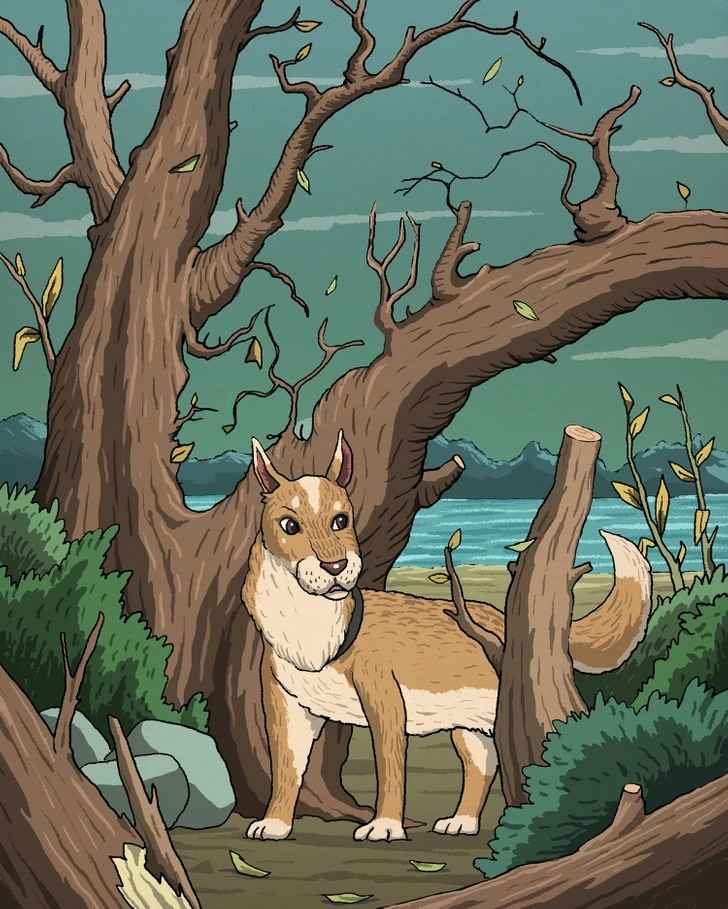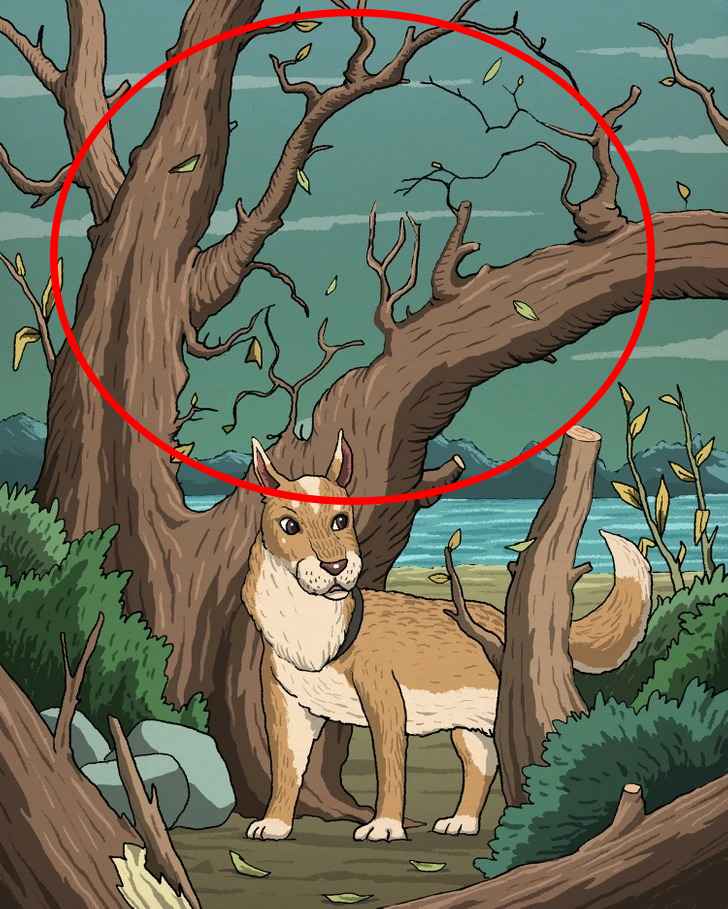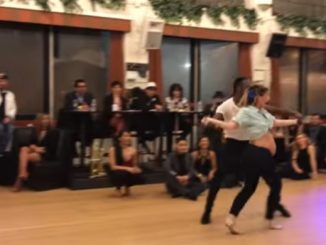Illusions are tricks that fool our brains. When we look at things, our brains fill in missing information to help us understand what’s around us. This is called perception. Some pictures are made to trick our perception. They’re called optical illusions. People use them to see how well our brains pay attention.

Now, let’s play a game. In this picture, there’s a forest with a dog near a tree. But there’s also a hidden cat. Can you find it in 7 seconds?
Look closely at the image.
Did you find the cat?
If you were able to locate the cat, congratulations! You have remarkably sharp eyesight and perceptive skills. The cat is cleverly camouflaged, blending seamlessly into the outline of the tree.
For those who couldn’t find the cat initially, the solution is that the feline’s shape is formed by the negative space and contours of the tree trunk and branches. Optical illusions like this one fascinate scientists, as they provide insights into how our brains process and interpret visual information.

Examining optical illusions can be a valuable exercise in improving problem-solving abilities and fostering creative thinking. When confronted with a seemingly straightforward image that contains a hidden element, it encourages us to look beyond the obvious and consider alternative perspectives.
The human visual system is an incredible feat of evolution, allowing us to quickly make sense of the world around us. Yet optical illusions demonstrate the limitations and biases inherent in the way our brains function. Studying these curious visual phenomena can shed light on the complexities of human perception.
Whether you spotted the cat immediately or needed a few extra seconds, engaging with optical illusions can be a fun and thought-provoking experience. It challenges us to think critically, expand our awareness, and appreciate the wonders of the mind’s eye.
So, how long did it take you to find the hidden feline in this image? Share your experience in the comments below!


